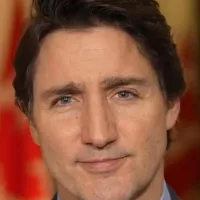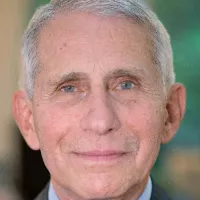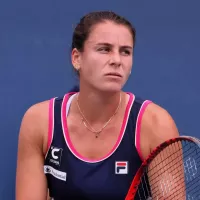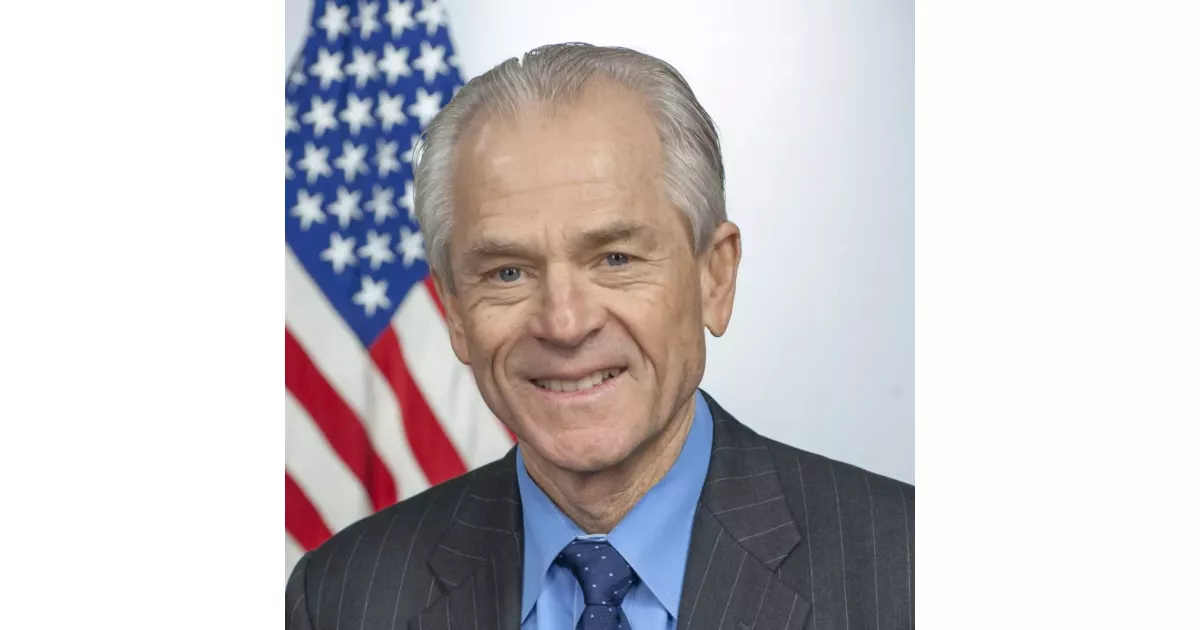From career breakthroughs to professional milestones, explore how Peter Navarro made an impact.
Peter Navarro is an American economist who served as a senior counselor for trade and manufacturing to President Donald Trump since January 2025. Previously, during Trump's first administration, he directed the White House National Trade Council and the Office of Trade and Manufacturing Policy. He is known for his protectionist views on trade and his advocacy for policies aimed at strengthening American manufacturing.
1981: Research associate at Harvard's Energy and Environmental Policy Center
From 1981, Peter Navarro worked as a research associate at Harvard's Energy and Environmental Policy Center.
1984: Publication of "The Policy Game"
In 1984, Navarro voiced support for free trade in his book The Policy Game, reflecting his earlier views as a mainstream economist.
1984: Wrote "The Policy Game: How Special Interests and Ideologues are Stealing America"
In 1984, Peter Navarro wrote the book "The Policy Game: How Special Interests and Ideologues are Stealing America," where he criticized special interest groups.
1985: Teaching at UC San Diego and University of San Diego
From 1985, Peter Navarro taught at the University of California, San Diego, and the University of San Diego.
1988: End of teaching at UC San Diego and University of San Diego
In 1988, Peter Navarro stopped teaching at the University of California, San Diego, and the University of San Diego.
1989: Joined UC Irvine faculty
In 1989, Peter Navarro moved to the University of California, Irvine, as a professor of economics and public policy.
1992: Ran for mayor of San Diego
In 1992, Peter Navarro ran for mayor of San Diego, finishing first in the primary but losing in the runoff to Susan Golding. He also paid fines for violating election laws.
1993: Ran for San Diego city council
In 1993, Peter Navarro ran unsuccessfully for San Diego city council.
1994: Ran for San Diego County board of supervisors
In 1994, Peter Navarro ran for San Diego County board of supervisors, but lost.
1996: Ran for 49th Congressional District
In 1996, Peter Navarro ran for the 49th Congressional District as the Democratic Party nominee, but lost to Brian Bilbray.
1996: Endorsement by Hillary Clinton
In 1996, while running for Congress, Peter Navarro was endorsed by then-First Lady Hillary Clinton and spoke at the 1996 Democratic National Convention.
2001: Started writing investing books
In 2001, Peter Navarro began writing investing books, including "If It’s Raining in Brazil, Buy Starbucks: The Investor’s Guide to Profiting from News and Other Market-Moving Events."
2001: Ran in special election for San Diego city council seat
In 2001, Peter Navarro ran in a special election to fill the District 6 San Diego city council seat but lost.
2006: Publication of "The Coming China Wars"
In 2006, Peter Navarro wrote "The Coming China Wars", a book where he examined China's challenges and conflicts in the global market.

2011: Published "Death by China"
In 2011, Peter Navarro and Greg Autry published "Death by China," arguing that China violates fair trade practices.
2011: First contact with Donald Trump
In 2011, Peter Navarro had his first contact with Donald Trump after a blog post in the Los Angeles Times.
2012: Directed and produced "Death by China" documentary
In 2012, Peter Navarro directed and produced "Death by China", a documentary film based on his book, narrated by Martin Sheen.
2012: Release of Documentary on China
In his 2012 documentary, Peter Navarro claimed that China caused the loss of 57,000 US factories and 25 million jobs.
April 2015: Op-ed on the Trans-Pacific Partnership
In an April 2015 op-ed, Peter Navarro claimed that the American economy would suffer severely from the Trans-Pacific Partnership (TPP).
September 2016: Authored economic plan for Trump campaign
In September 2016, Peter Navarro and Wilbur Ross authored an economic plan for the Donald Trump presidential campaign.
October 2016: Co-authored "Donald Trump's Contract with the American Voter"
In October 2016, Peter Navarro, along with Wilbur Ross and Andrew Puzder, co-authored an essay titled "Donald Trump's Contract with the American Voter".
November 2016: Response to economists warning against Trump's policies
In November 2016, Peter Navarro responded to 370 economists warning against Donald Trump's stated economic policies, dismissing their concerns.
December 21, 2016: Selected as director of White House National Trade Council
On December 21, 2016, Peter Navarro was selected by President-elect Donald Trump to a newly created position as director of the White House National Trade Council.
2016: Served as economic policy advisor to Trump's campaign
In 2016, Peter Navarro served as an economic policy advisor to Donald Trump's presidential campaign.
January 2017: Joined Trump administration as trade advisor
In January 2017, Peter Navarro joined the first Trump administration as an advisor on trade.
March 2017: Statement on TPP's Impact on the Auto Industry
In March 2017, Peter Navarro stated that TPP "would have been a 'death knell' to America's auto and vehicle parts industry.
May 2019: Navarro praises Trump's tariffs on Mexico
In May 2019, Peter Navarro stated that President Trump's decision to impose tariffs on Mexico, conditional on Mexico curbing illegal immigration to the United States, was "a brilliant move".
August 5, 2019: U.S. Treasury Department Designates China as Currency Manipulator
On August 5, 2019, the U.S. Treasury Department officially designated China as a "currency manipulator", a position long advocated by Peter Navarro.
September 2019: Navarro leads diplomatic effort on international mail rates
In September 2019, Peter Navarro successfully led a diplomatic effort to the Third Extraordinary Congress of the Universal Postal Union, after being tasked by Trump with addressing China's use of international mail rates for cheaper shipping. This resulted in an agreement where member countries could self-declare their rates starting in July 2020.
October 2019: Navarro defends trade war with China
In October 2019, Peter Navarro defended the trade war with China, stating that the United States was confronting a strategic rival. He advocated for trade restrictionist policies and worked with the DHS to combat counterfeited and pirated e-commerce goods.
January 29, 2020: Navarro issues memo warning of pandemic
On January 29, 2020, Peter Navarro issued a memo warning that the novel coronavirus could evolve into a full-blown pandemic and argued for travel restrictions from China.
January 31, 2020: Trump signs executive order combatting counterfeited goods
On January 31, 2020, Trump signed an executive order regarding counterfeited and pirated e-commerce goods from overseas, which was promoted by Peter Navarro.
February 2020: Hatfill becomes Navarro's advisor; promotes hydroxychloroquine
In February 2020, biologist Steven Hatfill became Peter Navarro's advisor regarding the coronavirus pandemic and promoted hydroxychloroquine as a treatment for COVID-19, which Navarro later touted despite its unproven effectiveness.
February 23, 2020: Navarro memo predicts high COVID-19 death toll
On February 23, 2020, Peter Navarro wrote another memo estimating that COVID-19 could infect up to 100 million Americans, resulting in 1-2 million deaths. He also called for a supplemental appropriation of at least $3 billion.
March 27, 2020: Navarro appointed to coordinate Defense Production Act policy response
On March 27, 2020, Peter Navarro was appointed by Trump to coordinate the federal government's Defense Production Act policy response during the coronavirus pandemic, promoting domestic production of coronavirus-related supplies and advocating for reduced reliance on foreign supply chains.
May 2020: Navarro criticizes stay-at-home orders; blames China for virus
In May 2020, Peter Navarro criticized stay-at-home orders, arguing they would cause more deaths than the coronavirus. He frequently referred to the virus as the "China virus" or the "CCP virus" and accused the Chinese government of intentionally spreading the virus.
July 2020: Navarro touts study on hydroxychloroquine
In July 2020, Peter Navarro promoted a widely criticized study claiming hydroxychloroquine was an effective treatment for coronavirus, despite public health experts pointing out limitations and the failure of multiple randomized controlled trials to confirm its effectiveness.
July 2020: USA Today publishes Navarro's op-ed criticizing Fauci
In July 2020, USA Today published an editorial by Peter Navarro criticizing Anthony Fauci, which was later disavowed by White House officials. The newspaper also issued an apologetic statement noting that Navarro's criticisms were misleading or lacked context.
August 2020: Mnuchin and Navarro argue over TikTok's fate
In August 2020, Steven Mnuchin and Peter Navarro engaged in a shouting match in the Oval Office about the future of TikTok. Mnuchin favored selling TikTok to a U.S. company, while Navarro advocated for an outright ban of the app.
August 2020: Contract for ventilators negotiated by Navarro terminated
In August 2020, a contract to purchase 42,900 ventilators negotiated by Peter Navarro was terminated due to concerns of overpayment and subject to internal investigation.
2020: Involvement in COVID-19 response and appointment as national Defense Production Act policy coordinator
During 2020, Peter Navarro was involved in the Trump administration's COVID-19 response. Also in 2020, he was named the national Defense Production Act policy coordinator.
January 20, 2021: China imposes sanctions on Navarro
On January 20, 2021, the Chinese government imposed sanctions against Peter Navarro, along with 27 other Trump administration officials, for interfering in China's internal affairs and undermining China-U.S. relations.
April 2023: Publication of "The Case for Fair Trade"
In April 2023, Peter Navarro's section of Project 2025, titled "The Case for Fair Trade", was published. It contained Navarro's policy ideas regarding trade and tariffs.
2023: Co-authorship of "The Case for Fair Trade"
In 2023, Navarro co-authored the chapter on trade for the ninth edition of the Heritage Foundation's book Mandate for Leadership, which provides the policy agenda for Project 2025. The chapter, called "The case for fair trade" argues for tariffs and trade restrictions.
July 17, 2024: Released from Prison and Endorses Trump
On July 17, 2024, Peter Navarro was released from prison and gave a prime time speech endorsing Trump for a second term at the 2024 Republican National Convention in Milwaukee, Wisconsin.
December 4, 2024: Appointed Senior Counselor for Trade and Manufacturing
On December 4, 2024, President-elect Donald Trump announced that Peter Navarro would be the senior counselor for trade and manufacturing in his second term.
January 2025: Appointment as senior counselor for trade and manufacturing
In January 2025, Peter Navarro became the senior counselor for trade and manufacturing to U.S. President Donald Trump.
January 2025: Appointed as senior counselor for trade and manufacturing in Trump's second term
In January 2025, Peter Navarro was appointed as the senior counselor for trade and manufacturing for President Trump in his second term.
January 20, 2025: Assumes Office as Senior Counselor
On January 20, 2025, Peter Navarro assumed office as the senior counselor for trade and manufacturing.
February 2025: Key Official in Trade Discussions
In February 2025, Peter Navarro and Stephen Miller were the leading officials in the economic discussions regarding the imposition of tariffs on Canada, China and Mexico. Navarro was also a key official behind several trade policy decisions made by the Trump administration.
Mentioned in this timeline

Donald John Trump is an American politician media personality and...
Fox News Channel FNC is a conservative American news and...

Justin Trudeau served as the rd Prime Minister of Canada...

Hillary Diane Rodham Clinton is a prominent American politician lawyer...

John F Kennedy JFK was the th U S President...

Anthony Stephen Fauci is a prominent American physician-scientist and immunologist...
Trending

11 minutes ago Cristian vs. Mboko: WTA Dubai 2026 Prediction, Odds and Match Preview

11 minutes ago Clara Tauson Faces Sofia Kenin at WTA Dubai: Predictions and Betting Odds

1 hour ago Democrats and Europe grapple with Trump's impact; Newsom says Trump unified Europe.
2 hours ago Gracheva vs. Sramkova: Dubai Tennis Championship Preview, Prediction, and Betting Odds

2 hours ago Iva Jovic Inspired by Djokovic, Competes in WTA Dubai, Faces Anisimova.

2 hours ago Emma Raducanu potentially to meet Rybakina in Dubai after Navarro match.
Popular

Kid Rock born Robert James Ritchie is an American musician...
Randall Adam Fine is an American politician a Republican who...

Pam Bondi is an American attorney lobbyist and politician currently...

Barack Obama the th U S President - was the...
The Winter Olympic Games a major international multi-sport event held...

XXXTentacion born Jahseh Dwayne Ricardo Onfroy was a controversial yet...

